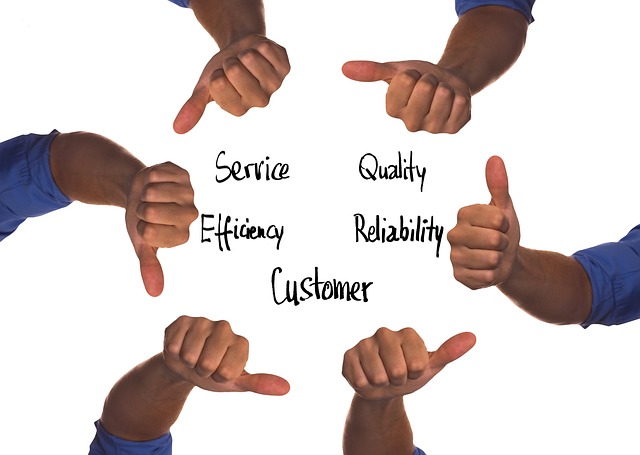The Importance of Self-Care in Maintaining Work-Life Balance
In today’s fast-paced world, where technology keeps us constantly connected, the concept of work-life balance has become increasingly elusive. Many people find themselves caught in a whirlwind of responsibilities, often placing work at the forefront of their lives. For entrepreneurs, this challenge is even more pronounced, as the demands of running a business can easily overshadow personal needs. This is where self-care steps in as a vital tool. Self-care involves any activity that we engage in to enhance our wellbeing, and its role in achieving a healthy work-life balance cannot be overstated.
Understanding the intricacies of self-care is essential for everyone, especially for entrepreneurs who often prioritize their business over their personal health. Self-care encompasses physical, emotional, mental, and spiritual aspects. Taking time to engage in self-care activities regularly is pivotal. It’s not merely a buzzword; it’s a necessity for maintaining your energy levels, reducing stress, and ultimately achieving your goals. By prioritizing self-care, you are investing not just in yourself, but in the future success of your ventures. When you feel more balanced and satisfied, your productivity and creativity naturally flourish.
Perhaps you’re wondering, “How exactly does self-care contribute to work-life balance?” Well, let’s break it down. When you dedicate time for self-care, you effectively create boundaries between your professional and personal lives. This separation is crucial; it allows you to recharge, enabling you to return to your work with a refreshed perspective. It’s like turning the page in a book. If you spend all your time reading the same page, you’ll miss out on the other chapters that might offer new insights or lessons. By caring for yourself, you ensure that you have the energy to explore those new chapters in your work.
Types of Self-Care Activities
Self-care types range widely, offering a plethora of options to fit varying lifestyles and preferences. You might find that physical self-care resonates with you more. This can include regular exercise, nutritious meals, and adequate sleep. Exercise, in particular, releases endorphins, often dubbed “the feel-good hormones.” These endorphins help lift your mood, enhance your cognitive function, and prepare you to tackle the challenges of the day. Likewise, maintaining a balanced diet provides the fuel your body needs to operate at its peak. When your body feels good, your mind follows suit, creating a powerful cycle that boosts performance.
On the other hand, if you lean more towards emotional self-care, activities such as journaling, talking to a friend, or engaging in creative pursuits may benefit you. These activities allow you to express your thoughts and feelings, reducing anxiety and promoting a sense of calm. Journaling, for example, can serve as a therapeutic practice that helps you sort through your thoughts, and it can also act as a historical record to reflect upon growth and changes over time.
Mental self-care is another essential component. It could be as simple as taking breaks throughout the day, practicing mindfulness, or engaging in hobbies that stimulate your mind. Mindfulness techniques help center your focus and can decrease feelings of overwhelm. Fostering a hobby, particularly one that requires concentration, can also provide a break from work-related thoughts, creating a healthy diversion that allows for mental rejuvenation.
The Role of Self-Care in Stress Management
Stress, if not managed appropriately, can have detrimental effects on both our physical and mental health. Entrepreneurs often experience high levels of stress due to the numerous obligations and uncertainties that come with leading a business. The notion of self-care becomes even more crucial in managing this stress. Engaging in regular self-care practices helps lower stress levels, equipping you with the resilience necessary to face challenges head-on. When you prioritize self-care, you create a buffer against potential burnout.
There are several techniques within the realm of self-care that specifically target stress management. Progressive muscle relaxation, for instance, is a technique that helps relieve physical tension. This practice is particularly effective for those who find that stress manifests as tightness in the body. Meanwhile, deep-breathing exercises can calm the nervous system and mitigate feelings of anxiety. By taking the time to adopt these practices, you essentially create a toolkit for yourself—one that you can draw upon in stressful moments at work.
Additionally, regular self-care fosters a sense of community if you engage in activities with others. Group yoga sessions, workout classes, or even a simple coffee catch-up with friends can enhance your emotional wellbeing. These social interactions not only contribute positively to your stress levels but also build a support network, essential for when times get tough. Having a reliable group of friends or colleagues during challenging moments can completely sway your mental and emotional state, making you feel valued and supported.
Self-Care as a Productivity Booster
You might be surprised to learn how self-care can greatly enhance your productivity. It sounds counterintuitive: taking time for oneself instead of diving back into work. However, by allowing yourself to recharge, you’re actually setting the stage for greater efficiency. When you’re well-rested and feeling fulfilled, you can approach tasks with creativity and focus. More importantly, self-care helps minimize the feelings of burnout that often plague entrepreneurs and professionals alike.
Consider this: working long hours without giving yourself a break often leads to decreased motivation and eventual burnout. Conversely, when you step away for a bit, your mind clears, and your motivation can return. You’ll likely find that you can perform tasks faster and with more accuracy. Incorporating short breaks, practicing mindfulness, or indulging in a hobby can shift your mindset and improve your work output. The key is to view self-care not as an escape from work but as an integral part of accomplishing work efficiently and creatively.
Moreover, a regular self-care routine can cultivate a sense of discipline. Entrepreneurs often juggle many responsibilities, and learning to prioritize self-care helps instill a structure that can benefit other areas of life too. This discipline comes with building a habit; setting aside time for self-care regularly can help you manage your time better. You’ll find that you can schedule your tasks more effectively around your self-care activities, creating a harmonious relationship between work and personal life.
Practical Tips for Implementing Self-Care
Integrating self-care into your busy life might seem daunting at first. However, it can be simpler than you think. The first step is to identify what self-care means to you personally. Take a moment to jot down activities that recharge you—what invigorates you? Next, schedule these activities into your calendar as you would any important business meeting. Treating your personal time with the same respect you give your work obligations can catalyze a shift in prioritization.
Start small. If your calendar feels overwhelmingly packed, you might find even a 10-minute break beneficial. During that time, practice deep breathing, take a brief walk, or enjoy a cup of tea without distractions from your phone or computer. These mini-breaks can offer you a necessary pause and prevent the buildup of stress.
Another effective strategy is to set boundaries. Determine specific hours during which you’ll focus solely on work and use the rest of your time for self-care and family. By defining these boundaries, you safeguard your personal time, eliminating the potential for work encroaching into your home life. Remember, it’s essential to communicate these boundaries to colleagues and family alike to create a supportive atmosphere that fosters your self-care efforts.
Overcoming Common Self-Care Obstacles
Implementing self-care isn’t without its challenges. Entrepreneurs often grapple with the misconception that taking time for themselves equates to laziness or unproductiveness. Let’s be clear: this couldn’t be further from the truth! Recognizing that your personal wellbeing directly impacts your overall performance is crucial. Acknowledging this connection can provide you with the motivation to prioritize self-care.
Another common obstacle lies in the guilt associated with taking time off. Many entrepreneurs feel they cannot afford to step away, even for a moment. One way to combat these feelings is to remind yourself of the long-term benefits of a self-care practice. When you invest in yourself, you’re not just benefiting your wellbeing, but also the longevity and success of your business. Creating a sustainable work-life balance begins with committing to self-care; your future self will thank you for the effort.
Finally, external pressures, whether from the work environment or social expectations, can make prioritizing self-care seem difficult. Surround yourself with like-minded individuals who support your self-care goals. Joining a community or finding an accountability partner can help foster this positive environment. Together, you can share experiences and motivate each other to stay committed to self-care, forging a path towards maintaining a healthy work-life balance.
FAQs
- What is self-care?
Self-care refers to activities and practices that we engage in intentionally to enhance our overall well-being. This can include physical, mental, emotional, and spiritual self-care practices. - How can self-care improve work-life balance?
By prioritizing self-care, individuals cultivate a clear boundary between work and personal life, allowing for recharging periods that ultimately boost productivity and satisfaction, thus contributing to a better work-life balance. - What self-care practices are particularly helpful for entrepreneurs?
Helpful self-care practices for entrepreneurs include regular exercise, mindfulness activities, scheduled time for hobbies, and connecting with supportive peers or mentors. - How can I integrate self-care into a busy schedule?
You can integrate self-care by scheduling it into your calendar, starting small with brief breaks, and setting clear boundaries around your work hours. - What should I do if I feel guilty for taking time for self-care?
It’s important to remind yourself of the long-term benefits of self-care. Consider it as an investment in your well-being and productivity; prioritize your health as it is vital for your business success.


